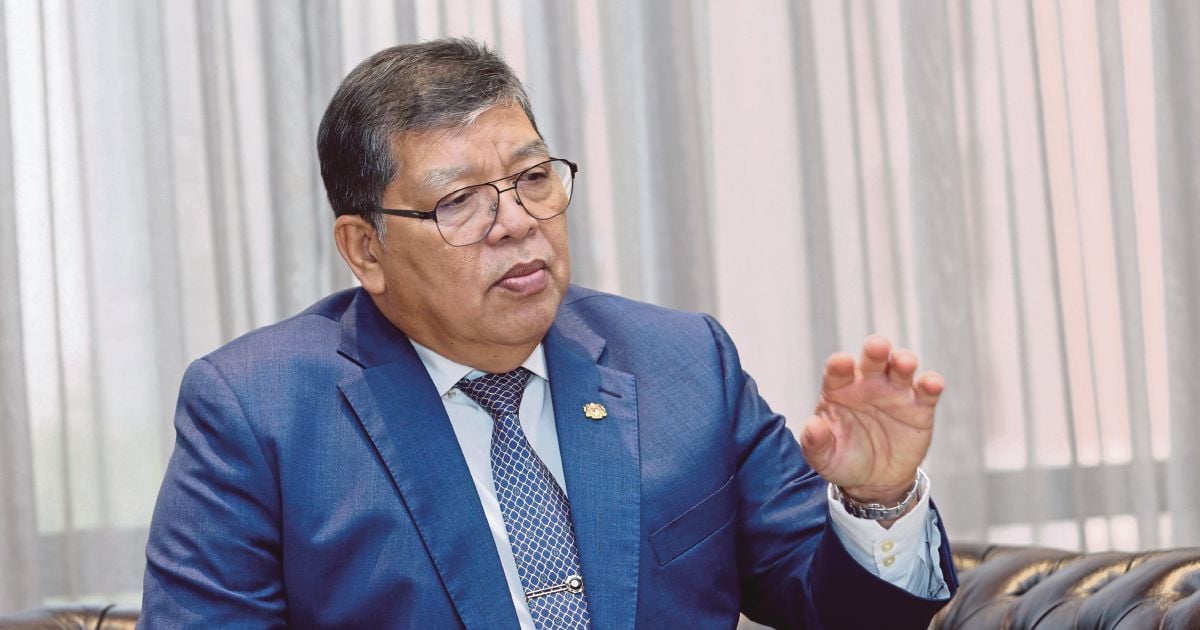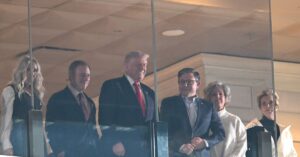KUALA LUMPUR: Dewan Rakyat has been reformed to such an extent that what was once an exclusive place has now become accessible to even schoolchildren and no-governmental organisations.
Dewan Rakyat Speaker Tan Sri Johari Abdul said the reforms has made Parliament more open and accessible to the public over the past two years.
This, he said, even included changes to its physical access and substantive procedures.
“From what was once an exclusive, almost ‘Brahmin’ place, it has now become communal. Everyone can come, and everyone has access.
“We also provide live broadcasts and run various programmes. During sittings, you can see so many people coming to watch and participate,” he told reporters after speaking as a panellist on Buletin TV3’s podcast here today.
Present were Media Prima Bhd group managing director Datuk Rafiq Razali, MPB News & Current Affairs group managing editor Jasbant Singh, his deputy and New Straits Times group editor Farrah Naz Abd Karim, NCA Television Network group editor Azhari Muhidin and Berita Harian deputy group editor M. Thillinadan.
Johari said a Parliament School Programme has so far involved 716 schools nationwide, with head boys and girls invited to observe parliamentary proceedings and meet members of parliament.
On procedural changes, he said 10 parliamentary select committees, which previously dissolved when Parliament did, have now become permanent and are enshrined in the Standing Orders.
“Previously, these committees would dissolve when Parliament was dissolved. But no longer, as we changed in the last session, we changed their status into permanent committees, enshrined in the Standing Orders.
“This means that even if Parliament is dissolved, the committees remain. When a new government comes in, the committees continue, only perhaps with adjustments depending on ministerial portfolios to ensure continuity,” he said.
Johari added that parliamentary questions have also been improved.
Instead of being limited to one question and one ministerial reply, MPs can now ask two questions and follow up with supplementary ones.
“For example, if an MP asks about an issue in their constituency, it no longer ends with just a scripted reply.
“They can follow up, and this builds a closer connection between the MPs and the ministers. I find this very encouraging, because it shows real change,” he said.
He added that the Special Chamber now allows issues pertaining to constituencies to be brought there, with a speaker and ministers answering questions from MPs.
Johari said the role of the speaker is also no longer limited to government MPs, as he has given opposition MPs the opportunity to take on the role in the Special Chamber.
“This never used to happen, but now I want them also to feel the weight of responsibility that comes with being speaker,” he said.
Meanwhile, Johari also expressed gratitude for the media’s extensive coverage, saying it brings the voice of citizens to Parliament.
“Their views, which may have been overlooked by the government, are now being raised through their comments and feedback.
“We do not want young people to lose interest in what is happening in Parliament. We want them to show their interest too.
“After all, they are the ones who will live in this world after us. Surely, they know better the kind of life they want, and what they expect for the future,” he said.
© New Straits Times Press (M) Bhd






